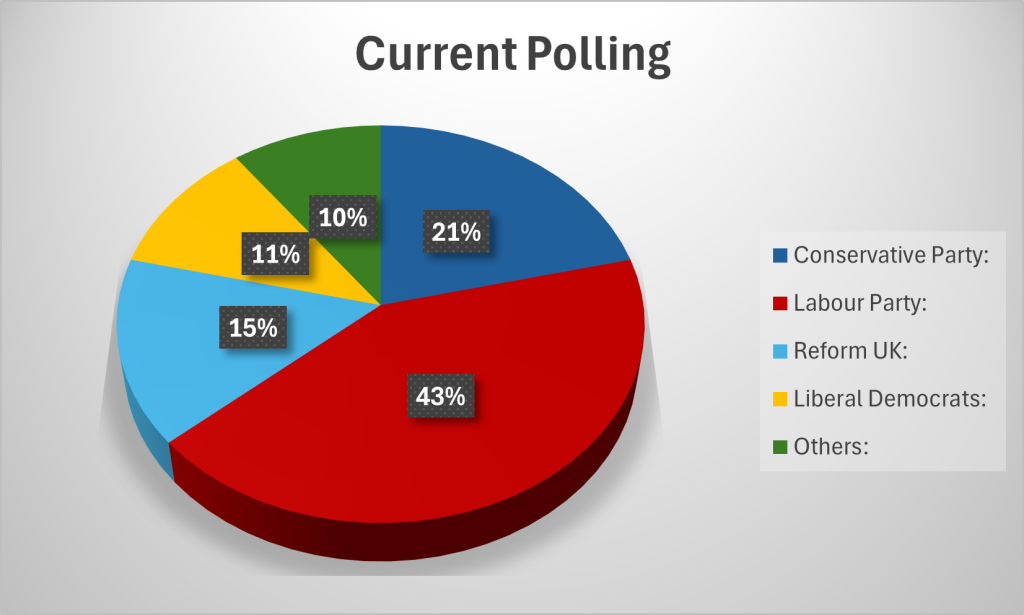Introduction
As the UK heads towards another pivotal election, the manifestos of the major political parties offer a glimpse into their visions for the country’s future. The Conservative Party, Labour Party, and Reform UK have laid out comprehensive plans addressing key issues such as taxation, healthcare, immigration, and climate change. This analysis examines the effectiveness and boldness of their proposed policies, and considers which ones are likely to resonate most with the British public, given the current socio-economic climate.
Taxation and Fiscal Changes
Labour Party
Labour’s progressive taxation plans aim to increase taxes on the wealthiest and on corporations, using the funds to enhance public services and reduce inequality. These measures are likely to raise necessary revenues but may encounter opposition from businesses and high earners who could consider relocating. The approach is bold, directly targeting economic disparity.
Reform UK
Reform UK proposes a flat tax rate to simplify the tax system and stimulate growth, alongside significant cuts in public spending and reduced National Insurance contributions. While this could boost investment and economic activity, it risks diminishing public services and increasing inequality. The strategy is radical, appealing to those frustrated with tax complexity and high public spending.
Conservative Party
The Conservatives promise tax cuts, including a reduction in National Insurance, aiming to support businesses with a competitive tax regime. This could spur economic growth but might reduce government revenues, impacting public services. The policies reflect traditional conservative economic principles, focusing on maintaining the status quo rather than implementing major changes.
Social Changes Including Healthcare and Education
Labour Party
Labour proposes significant NHS investments, free school meals for all primary children, and a national education service for lifelong learning. These measures can improve public services and social outcomes, although they require substantial financial resources. The plans are ambitious, aiming for comprehensive reforms and wide-ranging social impacts.
Reform UK
Reform UK focuses on reducing NHS bureaucracy and promoting private sector involvement, and advocates for more vocational training in education. While reducing bureaucracy might enhance efficiency, increased privatization could lead to unequal healthcare access. This market-driven approach challenges the current system, making it a bold stance.
Conservative Party
The Conservatives aim to boost NHS funding, recruit more healthcare professionals, and enhance service delivery. In education, they propose expanding apprenticeships and technical education. These measures may improve outcomes but might fall short without significant structural changes. The approach builds on existing frameworks, seeking incremental improvements.
Immigration
Labour Party
Labour plans a fairer immigration system, ending the hostile environment policy and balancing economic needs with humanitarian considerations. This could attract skilled workers and enhance social cohesion, though it might be seen as lenient by those prioritizing immigration control. The approach emphasizes a humane and balanced immigration policy.
Reform UK
Reform UK advocates strict immigration controls, aiming to reduce net migration and prioritize skilled migrants. This could mitigate public concern about immigration but may lead to labour shortages in essential sectors. The stance is hardline, appealing to those favouring stringent controls.
Conservative Party
The Conservatives propose a legal cap on migration, stronger border controls, and measures to stop illegal immigration, such as relocating illegal migrants to Rwanda. These actions may reassure those concerned about immigration but could face practical and ethical challenges. The policies reinforce a commitment to strict immigration control.
Net Zero
Labour Party
Labour commits to achieving net zero emissions by 2030, investing in green jobs and renewable energy. These targets are effective in addressing climate change but require significant investment and systemic changes. The approach is highly ambitious, aiming for substantial economic transformation.
Reform UK
Reform UK is sceptical of stringent net zero targets, advocating a balanced approach considering economic impacts and energy security. This might prevent economic disruption but could slow progress on climate change. The policy is bold in its scepticism, appealing to those concerned about the costs of green policies.
Conservative Party
The Conservatives aim to achieve net zero by 2050 with a pragmatic approach, balancing environmental goals with economic realities. This method is politically feasible but risks insufficient action on climate change. The approach seeks to maintain economic stability while progressing toward sustainability.
Public Reception
Given the current economic concerns, cost-of-living issues, and demands for improved public services, the British public is likely to favour policies that address these issues directly:
- Economic Hardship: Labour’s focus on progressive taxation and social investments may appeal to those struggling with inequality and high living costs.
- Stability and Security: Conservative tax cuts and immigration control may attract voters seeking economic stability and stricter border controls.
- Public Services: Labour’s bold plans for healthcare and education investment, coupled with the Conservative’s pragmatic approach to Net Zero, resonate with the public’s demand for tangible improvements and realistic sustainability goals.
- Immigration Policies: Labour’s humane approach might attract those favouring a balanced system, while the Conservative and Reform UK’s stricter measures appeal to those prioritizing tight immigration control amidst economic uncertainties.
Current Poll Standings
As the election approaches, the latest polls reflect the public’s sentiments toward the major parties. Here is a snapshot of the current standings:

Data correct as at 17/06/2024.
These figures indicate a closely contested race between the Conservatives and Labour, with Reform UK and other smaller parties also playing significant roles. The final outcome will depend on how effectively each party can mobilize their base and appeal to undecided voters.

